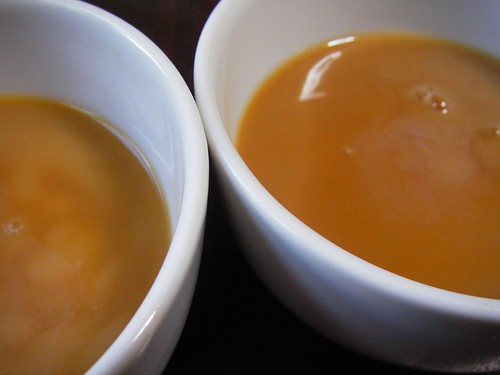Green Tea, Black Tea & Oolong Tea Increase Insulin Activity by More than 1500%
Increasing insulin activity is vital for those suffering from diabetes, but making sure one's insulin is working properly should be important to anyone interested in health.
Insulin is a hormone released by the pancreas when blood glucose levels rise. The purpose is to keep blood glucose in a normal range. It is insulin's job to tell the body's cells to take up glucose from the blood so that the levels return to normal.
In type 1 diabetes, the pancreas is no longer able to produce insulin. This causes higher blood glucose levels and eventually death, unless the missing insulin is replaced through injections or other methods.
In type 2 diabetes, the pancreas produces insulin, but normal insulin levels are inadequate to cause the cells to take up glucose from blood. This is known as insulin resistance, which can result in health problems ranging from coronary artery disease to blindness. One known cause of insulin resistance is obesity.
One way to keep insulin working properly is drinking tea. According to an in vitro study by Anderson & Polansky, black, green and oolong teas resulted in more than 15-fold increases in insulin activity.

The figure above shows that when added insulin was present, insulin activity was higher. However, when added insulin was absent, insulin potentiation was greatest. This means that when there was no added insulin, tea had the greatest effect on the activity of insulin.
As the strength of the tea increased, so did the insulin-enhancing activity, up to a point; the highest amount of tea leaves shows more activity than the lowest amount but less activity than the middle amounts.
The authors note that the most active components were epigallocatechin gallate (EGCg), followed by tannins, epicatechin gallate and theaflavins. EGCg was more than three times as effective as tannins and epicatechin gallate. Caffeine and catechin showed no activity.
When milk was added to the tea, insulin potentiation was decreased. One teaspoon (5 grams) of milk decreased activity by 33%, while 50 grams of milk decreased the activity by more than 90%. Both whole milk and skimmed milk had the same negative effect, as did nondairy creamers and soy milk. Lemon juice, on the other hand, had no effect.
Herbal teas, instant teas and iced teas showed no increases in insulin activity.
The authors mention that other studies have shown that when humans are given tea catechins prior to eating starch, the elevation of insulin is suppressed. So how can tea both increase insulin activity and suppress insulin levels? According to the authors, a possible explanation is that because tea increases the activity of insulin, less insulin is needed to get the same results as before. That is, when tea is present, the pancreas makes less insulin but the insulin does its job better.
So if you're drinking tea to keep your insulin levels and blood sugar in order, or to help with weight loss, drink your tea straight up or with lemon juice, but skip the milk. That's bad news for all the chai latte aficionados out there, but good news for those who get their camellia sinensis on old school style.
For more information on green tea and black tea see these posts:
Drinking 10 Cups of Green Tea Daily and Not Smoking Could Add 12 Years to Your Life
Black Tea is More Effective in Reducing Superoxide Dismutase than Green Tea
Green Tea Reduces the Formation of AGEs
Dental Health Effects of Green and Black Tea









1 kommenttia:
Teavana has a blend called Rev Up that is considered a wellness tea and is a blend of black, green, and oolong!!! I recently purchased this blend and it is fabulous. This research is not only beneficial to people with diabetes but will be beneficial for those with PCOS! I am even more pleased with my purchase after reading this article since I was recently diagnosed with PCOS.
Post a Comment